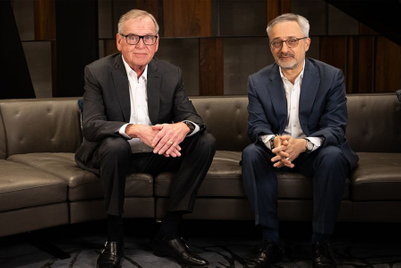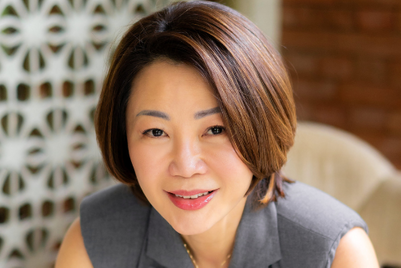.jpg&h=570&w=855&q=100&v=20250320&c=1)
This week, Omnicom agreed to acquire Interpublic Group (IPG), in a $13.25 billion deal that creates the world's largest advertising group, ahead of previous frontrunners WPP and Publicis Groupe.
If the purchase goes ahead, planned to complete in the second half of 2025, the new Omnicom will have over 100,000 ‘expert practitioners’ to work on client projects.
The combined company will deliver end-to-end services across media, precision marketing, CRM, data, digital commerce, advertising, healthcare, public relations, and branding.
But how will this affect staff, will the deal enhance purchasing power and competitiveness in securing large clients ahead of rivals, and could the deal trigger further mergers, prompting smaller agencies to innovate and differentiate themselves?
To find out, Campaign's sister publication PMW assembled a team of marketing experts to look at the implications for adland in 2025 and beyond.
“A deal makes sense for shareholders, but the question remains if it makes sense for clients and the people affected by it.”
Tim Ringel, Global CEO, Meet The People

“The pending merger of OMG and IPG doesn’t come as a huge surprise to the ad industry, simply because of the growing importance of size and scale when it comes to dealing with the post-pandemic problems around pressure on creative margins, digitalisation of ‘disposable’ content assets through AI, shift into principal media buying as well as dealing with legacy issues around working from home versus real estate assets on their P&Ls.
“A deal makes sense for shareholders, but the question remains if it makes sense for clients and the people affected by it. I would be bold and say no, as clients really don’t need more fragmentation rather than an integrated offering to eliminate waste as well as faster and better output of work. Will an OMG-IPG merger help with that? Definitely not in the next 12-24 months post-merger.”
“This could also open the door for independent agencies.”
Jeremy Haft, CRO, Digital Remedy

“The merger between Omnicom and IPG is driven by the pursuit of economies of scale. By combining forces, the new entity will have enhanced purchasing power, enabling greater efficiencies in inventory pricing and media buying. This consolidation allows both companies to leverage their size to compete more effectively for Fortune 100 brands, which are increasingly sought after by large holding companies.
“The deal signals a shift towards greater concentration in the ad industry. Larger entities will continue to dominate the space, but this could also open the door for independent agencies. With the combined Omnicom-IPG entity controlling more of the major brands, smaller clients may look to independent agencies for a more personalised, competitive offering – creating new opportunities for agencies that might have previously been shut out of the biggest opportunities. Ultimately, the merger could foster more competition in the marketplace, encouraging agencies to innovate, drive effectiveness, and deliver growth rather than simply competing on pricing.
“This consolidation could be a sign of further industry-wide mergers and acquisitions. As the ad landscape shifts, we may see more players looking to scale in response to the competitive pressures of the newly-formed giant. However, this could also create more space for nimble, innovative agencies to thrive by differentiating themselves through creativity and impactful results.”
“An exciting opportunity to redefine the industry.”
Mariana Carvalho-Jones, Senior brand and agency sales, Programmatic leader, Mantis

“Witnessing the historic merger of Omnicom Media Group and IPG is exciting. Having worked with both, I’ve always admired their unique strengths – from creative brilliance to cutting-edge data and media capabilities. I see this potential merger as an exciting opportunity to redefine the industry, combining expertise to deliver unmatched value for clients. While challenges lie ahead, the potential to innovate, evolve, and shape the future of advertising is immense.
“I’m optimistic about what’s to come and eager to see how this new chapter unfolds. Brands will need technology that is precise, transparent and innovative more than ever, especially as they navigate a more centralised ecosystem.”
“Mega-mergers in advertising are rarely straightforward.”
Teiffyon Parry, Chief strategy officer, Equativ

“This move reflects the ongoing push for scale and integration in a fragmented media landscape, but the complexity of merging operations at this level cannot be underestimated. Mega-mergers in advertising are rarely straightforward. Cultural clashes, regulatory challenges, power struggles, and slow progress have derailed similar attempts – notably the Omnicom-Publicis merger in 2014. So, it will be interesting to see whether Omnicom and IPG — as two US-based businesses — can avoid these pitfalls and succeed in creating the world’s largest agency network.
“As this story unfolds, the industry will be watching closely to see if the lessons of the past are addressed, particularly in navigating regulatory scrutiny and aligning organisational goals to meet client expectations in an increasingly dynamic environment.”
“Smaller, more adaptable players could find new opportunities to step up.”
Jason Warner, Managing director, UK & EMEA, SBS

“The Omnicom-IPG merger is a bold move, and raises a lot of questions around what will happen to clients and the wider industry. With holding companies continuing to merge into fewer, larger entities, real opportunities could open up for independent agencies. More and more clients are turning to indie agencies for their agile, hands-on approach, as well as their closer relationships with talent – areas that will only look more appealing when compared to the potential disconnect felt with a new mega-holdco.
“While there are likely cost savings and efficiencies to be made from this merger, it’s also going to bring disruption. Big integrations like this often affect service delivery and client confidence. It’ll be interesting to see if this creates a shift in client preferences or the competitive landscape, especially in an industry already struggling with tight margins and slow growth. Smaller, more adaptable players could find new opportunities to step up.”
“The components are all there, Flywheel, Acxiom and the Omni marketing operating system.”
Jay Pattisall, VP principal analyst, Forrester

“The Omnicom Group acquisition of IPG would reshape the marketing services category by consolidating the media scale of two global holding companies, accelerating the role of technology and AI in marketing delivery and setting the industry on a path toward a hybrid services and SaaS model.
“The aggregation of resources will accelerate Omnicom and the industries march to AI as a foundational element of marketing creation and production. The components are all there, Flywheel, Acxiom and the Omni marketing operating system. Principal media will continue to be commonplace and slightly grow with Mediabrands/Magna billings being able to take advantage of Omnicom principal media solutions.”
Pattisal also provided more insights on the Forrester blog, republished with permission below.
This is an acquisition, not a merger. Omnicom is acquiring IPG — this is not a merger of equals. Omnicom would be acquiring a slightly distressed IPG that has reported relatively flat growth for the last five quarters. This shows in the proposed leadership of the new company. In a joint conference call this morning, the two companies announced that John Wren will remain chairman and CEO of Omnicom; Phil Angelastro will remain EVP and CFO of Omnicom; and Philippe Krakowsky and Daryl Simm will serve as co-presidents and COOs of Omnicom. We assume a similar dynamic for the eventual structure of the new company.
The benefit of this acquisition is scale. The new company would enjoy a significant scale of technology, data, media clout, and the ability to produce content at the velocity and volume of media impressions. We anticipate that IPG Mediabrands will likely roll up to Omnicom Media Group; IPG’s growing commerce practice will likely be aligned with Omnicom’s Flywheel Digital unit; and Acxiom will likely be aligned with the technology group managing Omni, the holding company’s suite of proprietary technology. The combination of the Omni marketing operating system, Flywheel Digital, and Acxiom capabilities is a potent one, enabling Omnicom to better compete with Publicis Groupe, its Epsilon PeopleCloud, and recent commerce acquisition of Mars United.
The new company would concentrate on a culture of creativity. The Omnicom and IPG acquisition would place some of Madison Avenue’s most iconic creative agencies, such as McCann, FCB, The Martin Agency, Mullen, TBWA, BBDO, DDB, Goodby, and GSD&M, under single ownership. Both Omnicom and Interpublic Group leverage agency-first go-to-market models, rather than an integrated, holding-company-first model like that of Publicis Groupe or Dentsu. Omnicom and IPG’s like-minded approach to agency brands makes for a stronger likelihood of successful integration and enables the new company to focus on client and talent retention.
Executives from both holding companies acknowledge that details regarding future leadership and structure remain undecided and that the deal is subject to regulatory review. Nonetheless, the larger industry and client implications are beginning to come into focus. For clients of either Omnicom Group or IPG, this acquisition means:
Fewer enterprise choices will facilitate more independent options. The ‘big six’ holding cos may soon be the ‘big five’, creating some concern with having fewer options. Yet consolidation at the global level makes for opportunities in the independent marketplace. PE-backed, independent agencies like Horizon Media, PMG, DEPT, Tinuiti, Wpromote, and others have grown to capture scale in buying while delivering performance and tech skill.
These companies must and will react to a shifting competitive landscape. Anticipate more growth in independents’ innovation investments and more focus in their proposition to compete with the global consolidation of marketing scale at Omnicom, Publicis, and WPP.
Technology and innovation investments will accelerate AI’s role in marketing services. Omnicom and IPG executives point out that the combined resources will boost their technology investments.
This will accelerate the already-underway AI arms race among the holding cos and independents: 61% of agencies already use generative AI in marketing, the most mature group compared to IT, marketing orgs, and in-house agencies. Marketers should anticipate the proliferation of AI marketing in production, creative development, and media activation.
As agencies race to build competing AI marketing platforms, the combination of SaaS and services will change not only how marketing is created but also how it’s paid for.
Principal media solutions will proliferate and grow to account for nearly 10% global billings. Until recently, IPG was the last major holding company not to take an interest in media. While principal media practices are controversial, our research suggests that they represent less than 10% of total global media dollars under agency management. Yet with Omnicom’s existing principal media framework, marketers should expect a percentage of the IPG Mediabrands/MAGNA dollars to transact in principal media solutions, advancing the practice as more mainstream within the industry and within a combined Omnicon Media Group and IPG Mediabrands.
The story first appeared on Campaign's publication Performance Marketing World.




.jpg&h=334&w=500&q=100&v=20250320&c=1)


.jpg&h=334&w=500&q=100&v=20250320&c=1)


.jpg&h=334&w=500&q=100&v=20250320&c=1)




.jpg&h=268&w=401&q=100&v=20250320&c=1)
.jpg&h=268&w=401&q=100&v=20250320&c=1)
.png&h=268&w=401&q=100&v=20250320&c=1)

.jpg&h=268&w=401&q=100&v=20250320&c=1)
